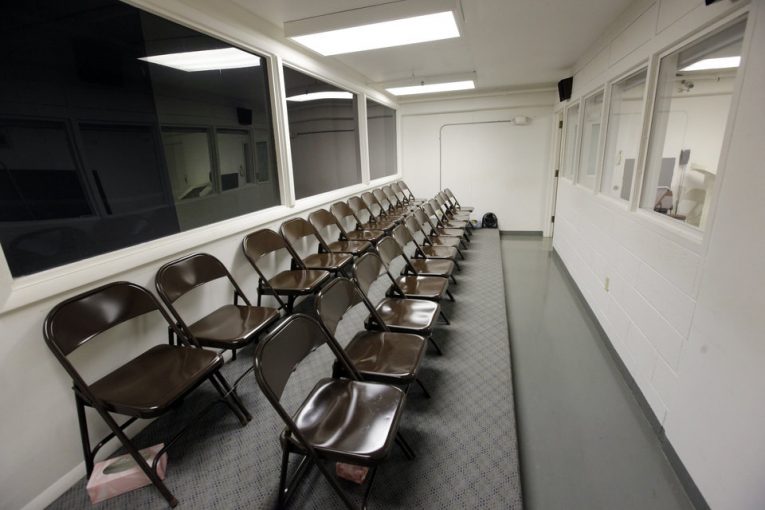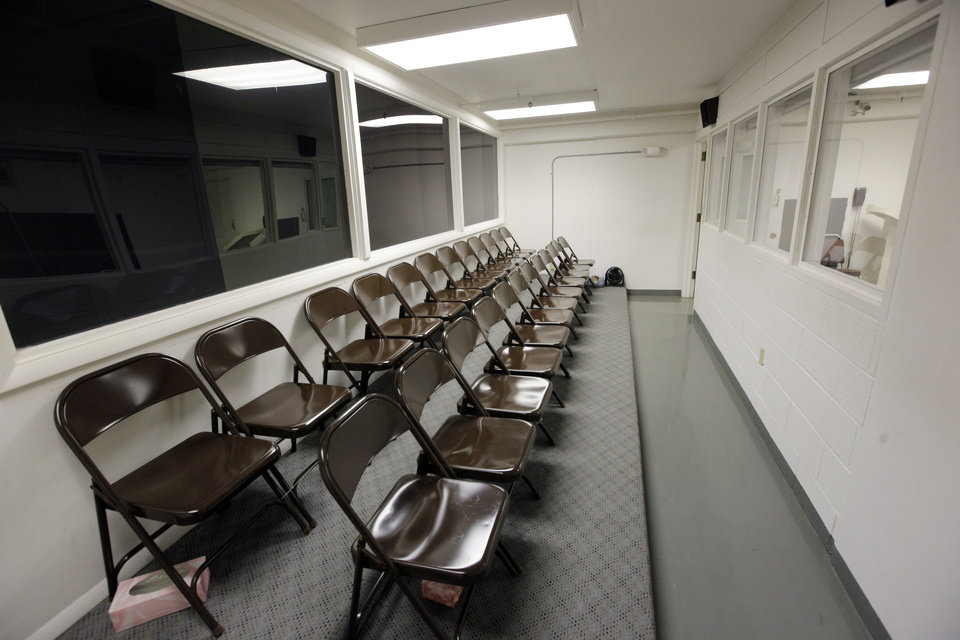

By Catherine Hamilton
OKLAHOMA CITY, OK — A federal judge in Oklahoma City has refused to block the upcoming executions of several prisoners on death row in Oklahoma, the first of which is the Thursday execution of John Grant.
Even though Oklahoma Attorney General John O’Connor gave an on-the-record promise to not execute plaintiffs during the lawsuit against Oklahoma’s lethal injection protocol while it is pending in district court, the court has still refused the injunction request.
AG O’Connor sought execution dates for the death row prisoners after they were removed from the lawsuit as plaintiffs by the federal district court Aug. 11.
However, in the same ruling, the court acknowledged the question of whether Oklahoma’s execution protocol causes unconstitutional pain. It set up a trial on the issue for the 26 prisoners as plaintiffs, scheduled to start in Feb. 2022.
The U.S. Court of Appeals for the Tenth Circuit ordered for the dismissed prisoners to be reinstated as plaintiffs on Oct. 15. After they were reinstated, the plaintiffs requested that AG O’Connor honor his promise to not pursue executions while the lawsuit was pending. His commitment can be found in a hearing transcript (page 31).
AG O’Connor refused to dismiss the execution dates. The prisoners asked the federal district court to enact the state’s promise, wherein the request, with the  order given Oct. 25, was denied.
order given Oct. 25, was denied.
A statement from the attorney for the plaintiffs, Dale Baich:
“The district court itself has acknowledged serious questions about whether Oklahoma’s execution procedures will cause prisoners unconstitutional pain and suffering. With a trial on that very question set to begin in February, executions should not go forward. We will ask the Tenth Circuit to review the district court’s decision and stay Mr. Grant’s scheduled execution on Thursday, as well as those that are set over the coming months.”
The upcoming executions are the first to be scheduled in Oklahoma since the execution of Clayton Lockett was considered botched in 2014; the wrong drug was used in the 2015 execution of Charles Warner; and the execution of Richard Glossip was halted last minute when it was discovered the executioners were going to use the wrong drug again and the governor halted the execution in 2015.
The state’s current execution protocol returns to the same drug combination that was used in previous problematic executions. It also lacks specific plans for training the executioners and other necessary protocols.
Oklahoma plans to use the three drugs, including the high-risk sedative midazolam, that were used in the executions of Lockett and Warner and near-execution of Glossip. Additionally, the protocol uses a paralytic, which is an unneeded and hazardous part of the execution process that merely hides problems with the protocol, according to critics.
Critics say this protocol poses a serious possibility, seen in evidence from other executions, of the prisoners suffering from the excruciating pain of pulmonary edema, an experience comparable to waterboarding. Midazolam does not prevent prisoners from feeling the pain of the other two execution drugs, and is unable to keep the person completely unconscious while they experience pulmonary edema.
The use of a paralytic also increases the chance of the prisoner suffering from pulmonary edema, critics note, explaining the paralytic does not make death happen quicker: it instead makes the prisoner appear to be dying peacefully while they are actually suffering immensely. The prisoner is unable to shout out in pain because their vocal cords are paralyzed.
Jan. 15, 2015: a SCOTUS 5-4 vote allowed the execution of Charles Warner to go forward, during which he was executed with midazolam (a sedative), rocuronium bromide (a paralytic), and potassium chloride to stop his heart. The state disclosed in Oct. 2015 that potassium acetate, rather than potassium chloride, had been used during the execution, even though the logs from the execution said it was potassium chloride.
Sept. 30, 2015: moments before Richard Glossip’s execution, the state reported that they were cancelling the execution because they had the wrong drugs. Glossip received confirmation that potassium chloride would be used in the procedure, but it was disclosed that the state had purchased potassium acetate on accident.

